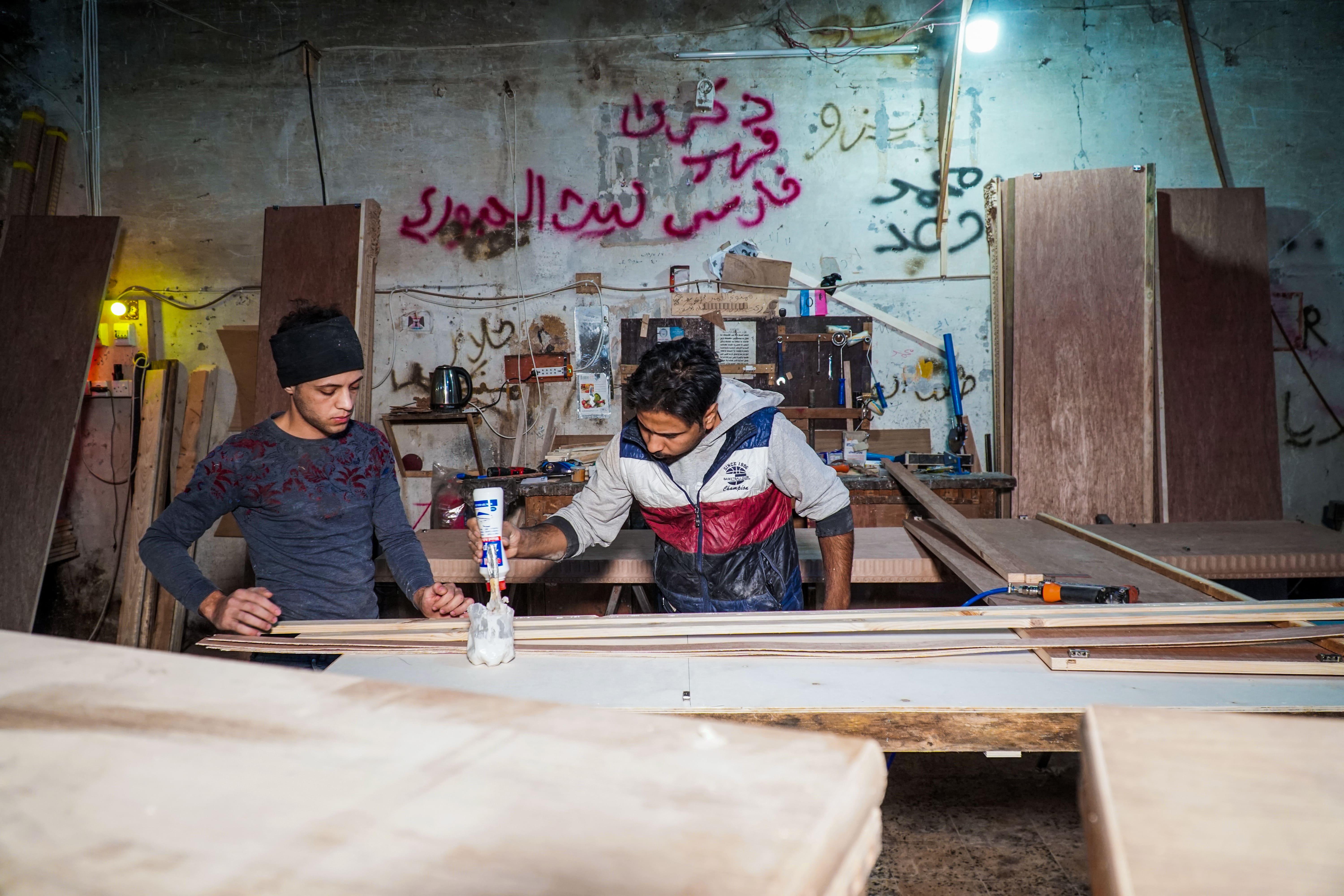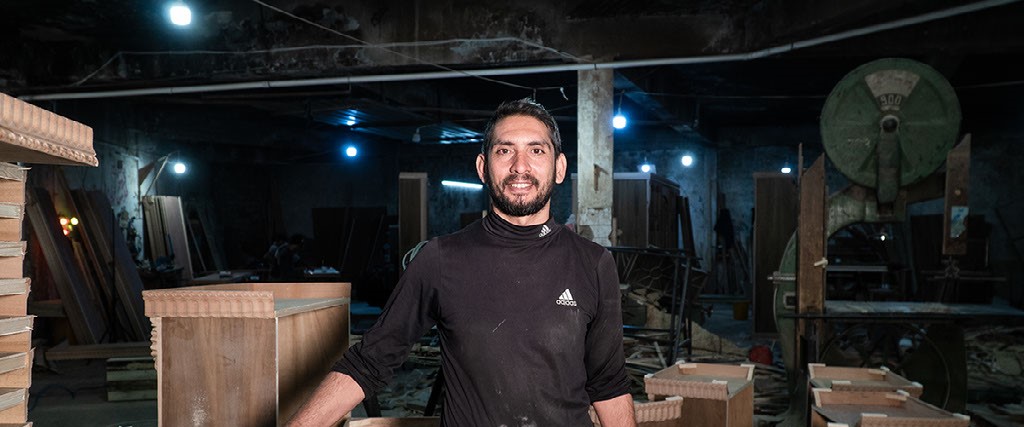
Thamer* is a 34-year-old father of four, and the proud owner of Al-Khair furniture workshop.
Before ISIL took Mosul, the factory was one of the most active businesses in the city and employed almost 20 workers. It supplied the city’s residents with beautiful, high-quality furniture.
When ISIL entered Mosul, Thamer closed his workshop and left with his family to Duhok. “All I could think of was my family’s safety; I knew the toll that war could take, as I lost my left hand in the 2003 war” said Thamer. Five months after being displaced, however, the family had to return to Mosul because they could not afford the daily living expenses and rent away from home.
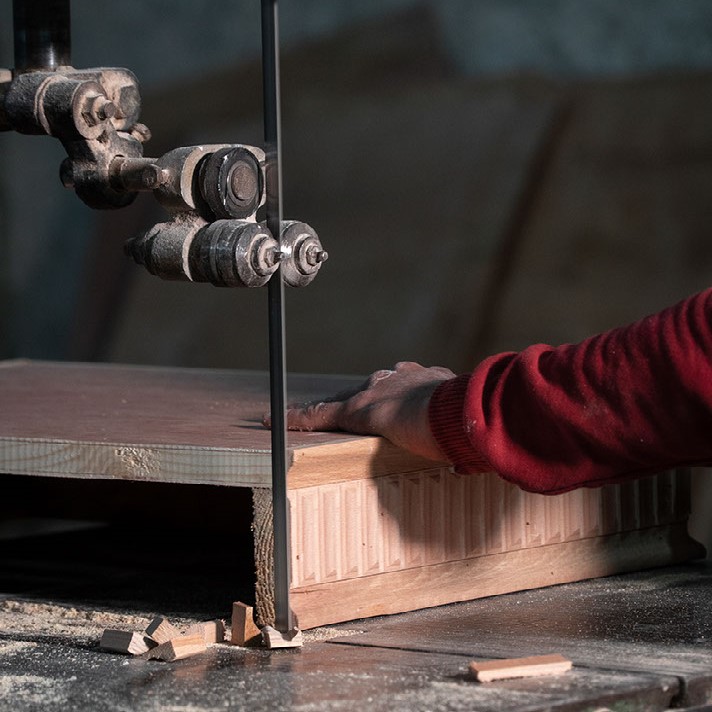
In Mosul, Thamer and his family did not have to pay for rent, but reopening the business proved impossible. Although the Al-Khair building was not damaged, all the equipment and materials were stolen or destroyed.
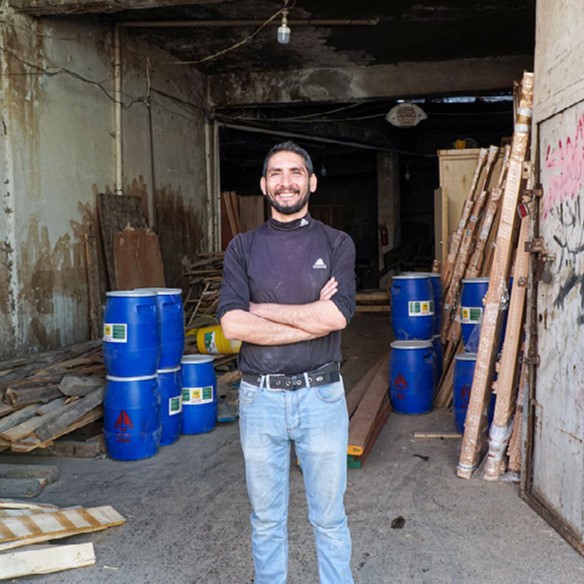
Thamer still has vivid memories of hardship under ISIL. Members of the group executed his cousin because they found him smoking. Thamer was deeply shocked and for a while kept his family indoors, but life had to go on and hiding was not the solution. Thamer started working as a day labourer in a carpentry workshop until Mosul was retaken. When the situation improved, he reopened his workshop and hired two employees, and then two more.
With support from IOM Iraq’s Enterprise Development Fund (EDF), Thamer was able to expand his business.
“This opportunity came at the right time. I have expanded my business and hired another six employees, and now we design furniture as well. My business is developing day after day. IOM’s support positively influenced more than one aspect of my life,” explained Thamer. “Now my family and I feel much more comfortable psychologically, as we know we can make a decent living.”
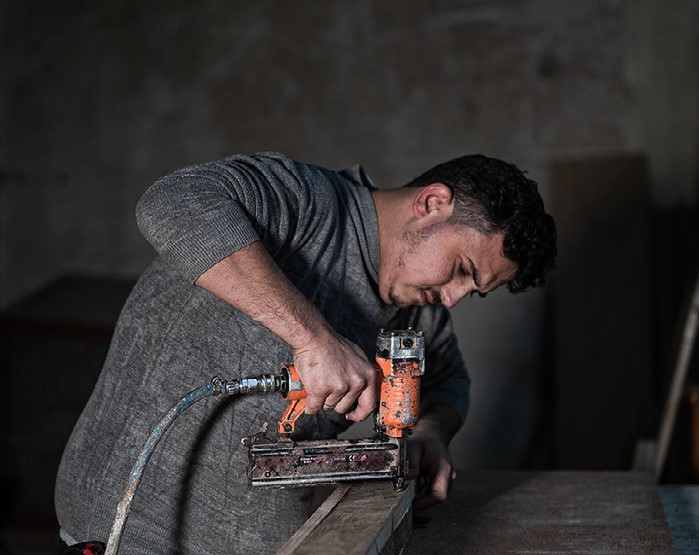
Mustafa*, a 39-year-old father of four, lives in east Mosul with his family and parents in an old house.
Mustafa had a small cozy house near Al-Khair furniture workshop where he worked. When ISIL occupied the city, militants barged into his house one night and asked everyone to leave – or the family would be killed. Mustafa and his family fled without being able to take anything from the house aside from the clothes their could carry. They fled to Erbil, and later heard that their house had become a military base for ISIL.
In displacement, Mustafa kept hoping that one day he would go back to live in Mosul and that life would go back to what it was. But when ISIL killed two of his cousins, he gave up on going back. He started working as a construction worker to pay rent and cover other expenses.
After Mosul was retaken, Mustafa heard that some factories in Mosul had re-opened and that the situation was improving. Al-Khair furniture workshop was looking for a carpenter and got in touch to offer him a job; he was hired shortly after that.
Full of hope, Mustafa and his family returned to Mosul and temporarily moved in with his parents, until his financial situation improved.
“I now have a job and my family is safe. This is all we need,” he said.
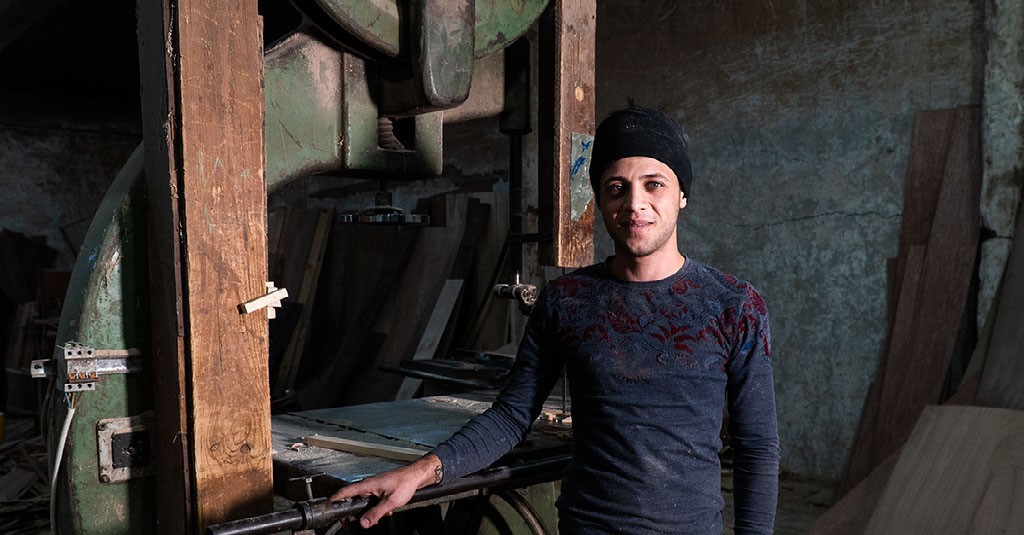
Ahmed* had worked at Al-Khair for two years before ISIL, but when the workshop reopened Thamer wasn’t able to hire all former employees. Thanks to the EDF grant, Thamer was able to employee more people and hire Ahmed again, thus providing him with a stable source of income.
Thamer was also able to bring new people into the team like Najeeb, 22, who lives with his parents in a partially destroyed house in Mosul.
Before the war Najeeb was attending high school and his father was working as a taxi driver. During the conflict, ISIL attacked the family, and members of the group set the taxi on fire. Najeeb’s sister was badly injured, and all their savings were spent on her treatment. Najeeb had to leave school so he could help provide for his family.
“I’m happy with my new job, my monthly salary is 500 USD, and I’m learning new skills that will help me in the future. Thank you, IOM!” said Najeeb.
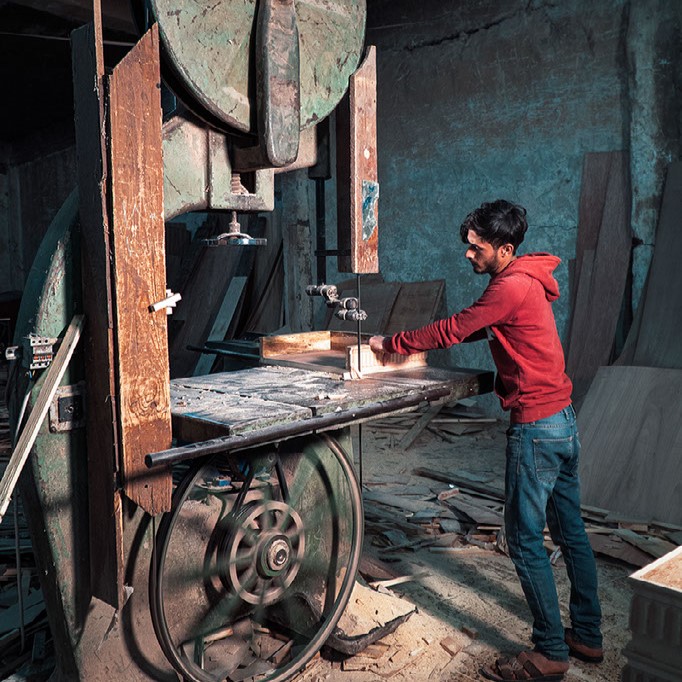
Al-Kair Furniture Workshop is supported by EDF, an initiative co-funded by U.S. Department of State: Bureau of Population, Refugees, and Migration (PRM)
* Names and some identifying details have been changed to protect the privacy of individuals.
